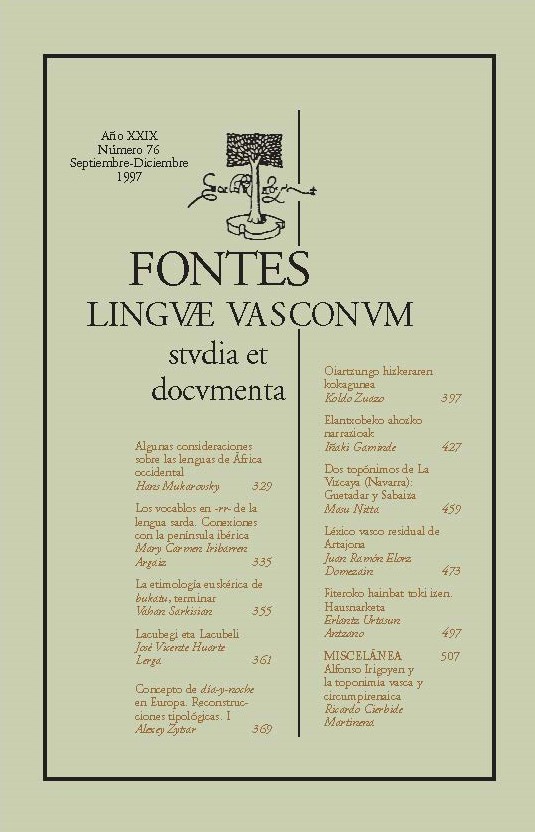Dos topónimos de La Vizcaya (Navarra): Guetadar y Sabaiza
Abstract
This is the etymological study of two major place names, Guetadar and Sabaiza, in La Vizcaya (Navarra), previously a Basque-speaking area, and one in which the language was lost from use comparatively late on: both names are documented as far back as the 11th and 12th centuries and formally stable (isolated variants: Quetadar, Gueradarr, etc; and Sabaisse, Isabaica, etc.). The author, who does not fully guarantee the reliability of the documentary evidence, seeks etymological support in geographical knowledge of these places, on the assumption that the toponyms concerned are descriptive of topographic realities. For him, they are Basque compounds: Guetadar < ugeta ((h)ur ‘water’ + the suffix denoting abundance –eta), with dar ‘vein of water’, a meaning which has not been recorded up to now (lexicological contribution); and Sabaiza < zabal ‘wide’ + (h)aitz ‘stone, rock’ with the article –a. (The interpretation of the second constituent as a locative suffix –(a)itz, although in theory not impossible, is unacceptable here for semantic reasons).
##about.statistics##
Copyright (c) 1997 Masu Nitta

This work is licensed under a Creative Commons Attribution-NonCommercial 4.0 International License.







